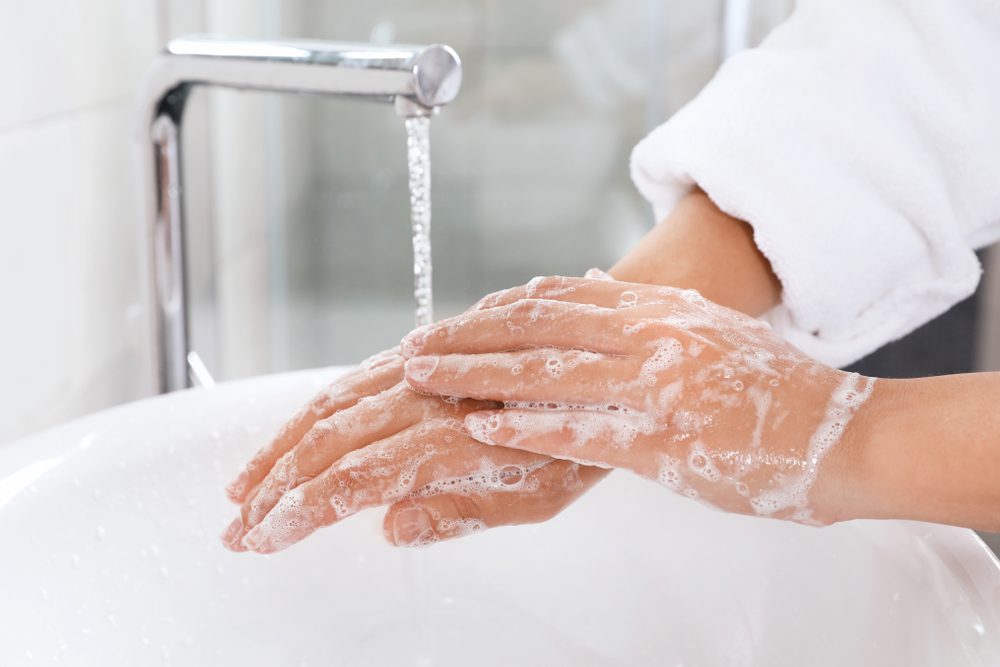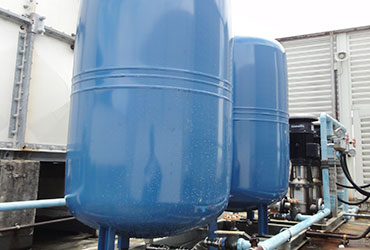Techniques to Address Low Water Pressure in Your Home
Techniques to Address Low Water Pressure in Your Home
Blog Article
Just how do you actually feel in regards to 10 Reasons for Low Water Pressure in Your House?

Low water pressure in your home can be a frustrating trouble, affecting whatever from bathing to cleaning meals. If you're experiencing weak water circulation, there are a number of possible reasons and services to discover. In this guide, we'll go over usual reasons for low tide pressure and practical steps to resolve the concern effectively.
Introduction to Low Water Stress
Low tide stress occurs when the circulation of water from your taps, showers, and various other components is weaker than usual. This can make everyday tasks much more tough and much less effective. Comprehending the root causes of low water stress is critical to finding the best service.
Usual Root Causes Of Low Water Pressure
Pipe Obstructions
Over time, pipes can end up being obstructed with natural resource, sediment, or particles, limiting the circulation of water. This is a typical issue in older homes with galvanized steel pipes.
Corrosion
Rust within pipelines can result in leaks and decreased water stress. Corrosion accumulation can constrict water circulation, specifically in aging plumbing systems.
Faulty Stress Regulatory Authorities
Stress regulators are in charge of maintaining consistent water pressure in your house. If they malfunction, it can result in low water pressure or uneven flow throughout the house.
Metropolitan Water Issues
In some cases, the trouble exists outside your home. Metropolitan supply of water problems, such as main line leaks or upkeep work, can temporarily lower water pressure in your location.
Just How to Detect Low Tide Pressure
Examining Faucets and Components
Start by checking the water stress at various taps and components throughout your home. If the concern is separated to particular locations, it might suggest local problems.
Examining Pipelines
Evaluate visible pipes for indications of leaks, rust, or blockages. Take note of any unusual sounds, such as banging or rattling pipes, which can suggest concerns within the plumbing system.
Consulting with a Plumber
If you're unable to determine the root cause of low tide stress, think about hiring a specialist plumber to conduct a thorough examination. They can identify underlying concerns and suggest appropriate options.
Do It Yourself Solutions to Repair Low Water Pressure
Cleaning Up Aerators and Showerheads
Mineral deposits can gather in aerators and showerheads, decreasing water circulation. Remove and clean up these elements on a regular basis to boost water stress.
Flushing Hot Water Heater
Debris accumulation in the hot water heater can restrict flow and decrease efficiency. Flushing the storage tank occasionally aids get rid of debris and keep optimal efficiency.
Inspecting Stress Regulator
Make sure that the pressure regulatory authority is working appropriately. Adjusting or replacing the regulatory authority can help recover proper water stress throughout your home.
Cleaning Clogs in Pipes
For small obstructions, try making use of a plumbing serpent or chemical drainpipe cleaner to clear blockages in pipes. Beware when utilizing chemicals and follow safety standards.
When to Call an Expert Plumber
If DIY efforts fail to fix the concern or if you think substantial plumbing troubles, it's best to seek support from a qualified plumber. They have the experience and devices to address complex concerns safely and properly.
Preventive Measures to Preserve Water Pressure
Normal Upkeep
Schedule routine maintenance for your plumbing system to avoid issues such as rust, leaks, and obstructions. Addressing small troubles early can help avoid more significant fixings later.
Setting Up a Pressure Booster
Take into consideration setting up a pressure booster pump to improve water stress in areas with constantly low flow. This can be specifically valuable for multi-story homes or buildings with high-demand fixtures.
Surveillance Water Use
Be mindful of water use practices and prevent ill-using the plumbing system. Basic modifications, such as astonishing showers and laundry tons, can assist preserve sufficient water pressure.
Verdict
Dealing with low tide stress can be irritating, yet identifying the underlying causes and implementing suitable options can restore optimal circulation throughout your home. Whether it's cleaning aerators, evaluating pipes, or seeking advice from a plumber, taking aggressive actions can ensure a steady supply of water for your day-to-day needs.
HOW TO FIX LOW WATER PRESSURE IN YOUR HOUSE (EXPERT GUIDE)
The morning shower lacking any real pressure? Bathtub taking hours to fill? Or maybe you’re dissatisfied with the inadequate performance from your combi boiler?
Then you, like millions of others across the UK, might be experiencing low water pressure.
Fortunately, the good news is that you don’t have to continue living this way. The cause of low water pressure in the home is often quite simple, and you may not even require a plumber to fix the problem.
What causes low water pressure in the house?
If you are experiencing issues with water pressure throughout your home, then you may have one of the problems outlined below.
Most of these problems can be fixed quite easily, but for others, you may need to contact a plumber.
Obstructed Shutoff Valve
If you’ve just bought a new home or recently had building work conducted on your property, there is a chance that your water valves were not fully opened.
If the water valve is partially closed, then you may be restricting the amount of water entering your home. To fix this, simply ensure the valve is fully open.
If the valve appears fully open but you are still encountering reduced water pressure, then the valve may be broken. If this is the case, do not under any circumstances try to fix it without proper training.
Often found under your kitchen sink, a water valve will usually look like a bright yellow handle.
Again, if you believe the water valve is broken, contact a plumber immediately.
Leaks in Your Water Pipes
Leaks are the worst-case scenario when it comes to low water pressure.
If the water pipes are damaged, then this will cause low water pressure, as not all the water will make it to your taps.
After you’ve checked to see if the valve is fully open, you can conduct a leak check of your home. Now, this may seem scary, but it is actually quite simple.
Clogged Water Pipes
Clogged water pipes are one of the most common causes of low water pressure.
These clogs usually build-up when your home is supplied water via iron pipes. Iron is particularly vulnerable to rusting which can then break off and cause an obstruction within your system. You also face the problem of things like dirt, gravel or sand entering creating mineral deposits which further block water flowing from the mains water supply.
Unfortunately, if you suspect that clogged pipes may be restricting your water supply, then you will need to contact a plumber.
In this situation, you will either need to have your pipes removed and cleaned or in more severe cases, you could require a new set of water pipes.
Designer Taps
Designer taps look fantastic, but are they built to be efficient in your plumbing system? Modern taps are built for modern homes and they often have lower flow rates that are specifically designed for use within high-pressure systems.
Install a Water Pressure Booster Pump
If the issue is simply that the mains water pressure supply is too low, the simplest fix is to invest in a booster pump. Found in homes of all shapes and sizes, booster pumps are a relatively cheap option to add extra pressure to your home.
Designed to increase water pressure by passing water into the pump from your mains supply and then ejecting it into your home water system at a higher pressure, a booster pump is a truly simple and effective solution to increasing water pressure.
https://www.anchorpumps.com/blog/the-plumbers-guide-to-fixing-low-water-pressure/

HOW TO FIX LOW WATER PRESSURE IN YOUR HOUSE (EXPERT GUIDE)
The morning shower lacking any real pressure? Bathtub taking hours to fill? Or maybe you’re dissatisfied with the inadequate performance from your combi boiler?
Then you, like millions of others across the UK, might be experiencing low water pressure.
Fortunately, the good news is that you don’t have to continue living this way. The cause of low water pressure in the home is often quite simple, and you may not even require a plumber to fix the problem.
What causes low water pressure in the house?
If you are experiencing issues with water pressure throughout your home, then you may have one of the problems outlined below.
Most of these problems can be fixed quite easily, but for others, you may need to contact a plumber.
Obstructed Shutoff Valve
If you’ve just bought a new home or recently had building work conducted on your property, there is a chance that your water valves were not fully opened.
If the water valve is partially closed, then you may be restricting the amount of water entering your home. To fix this, simply ensure the valve is fully open.
If the valve appears fully open but you are still encountering reduced water pressure, then the valve may be broken. If this is the case, do not under any circumstances try to fix it without proper training.
Often found under your kitchen sink, a water valve will usually look like a bright yellow handle.
Again, if you believe the water valve is broken, contact a plumber immediately.
Leaks in Your Water Pipes
Leaks are the worst-case scenario when it comes to low water pressure.
If the water pipes are damaged, then this will cause low water pressure, as not all the water will make it to your taps.
After you’ve checked to see if the valve is fully open, you can conduct a leak check of your home. Now, this may seem scary, but it is actually quite simple.
Clogged Water Pipes
Clogged water pipes are one of the most common causes of low water pressure.
These clogs usually build-up when your home is supplied water via iron pipes. Iron is particularly vulnerable to rusting which can then break off and cause an obstruction within your system. You also face the problem of things like dirt, gravel or sand entering creating mineral deposits which further block water flowing from the mains water supply.
Unfortunately, if you suspect that clogged pipes may be restricting your water supply, then you will need to contact a plumber.
In this situation, you will either need to have your pipes removed and cleaned or in more severe cases, you could require a new set of water pipes.
Designer Taps
Designer taps look fantastic, but are they built to be efficient in your plumbing system? Modern taps are built for modern homes and they often have lower flow rates that are specifically designed for use within high-pressure systems.
Install a Water Pressure Booster Pump
If the issue is simply that the mains water pressure supply is too low, the simplest fix is to invest in a booster pump. Found in homes of all shapes and sizes, booster pumps are a relatively cheap option to add extra pressure to your home.
Designed to increase water pressure by passing water into the pump from your mains supply and then ejecting it into your home water system at a higher pressure, a booster pump is a truly simple and effective solution to increasing water pressure.
https://www.anchorpumps.com/blog/the-plumbers-guide-to-fixing-low-water-pressure/
Hopefully you liked our topic about 9 Reasons for Low Water Pressure in Your House. Thanks a ton for taking the time to read through our piece of content. In case you appreciated our blog entry please do not forget to share it. Thank-you for your time invested reading it.
Call Report this page